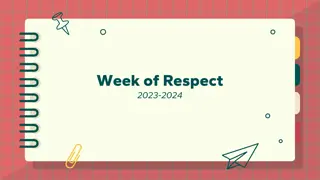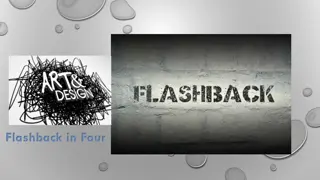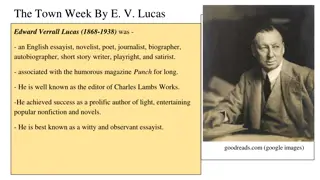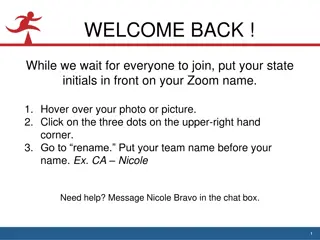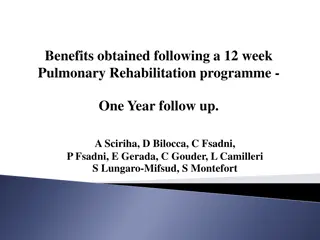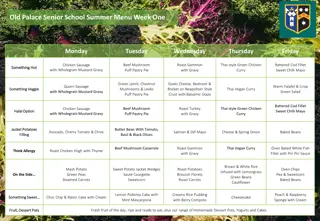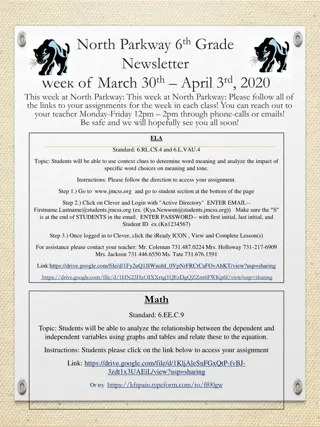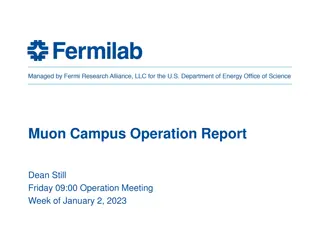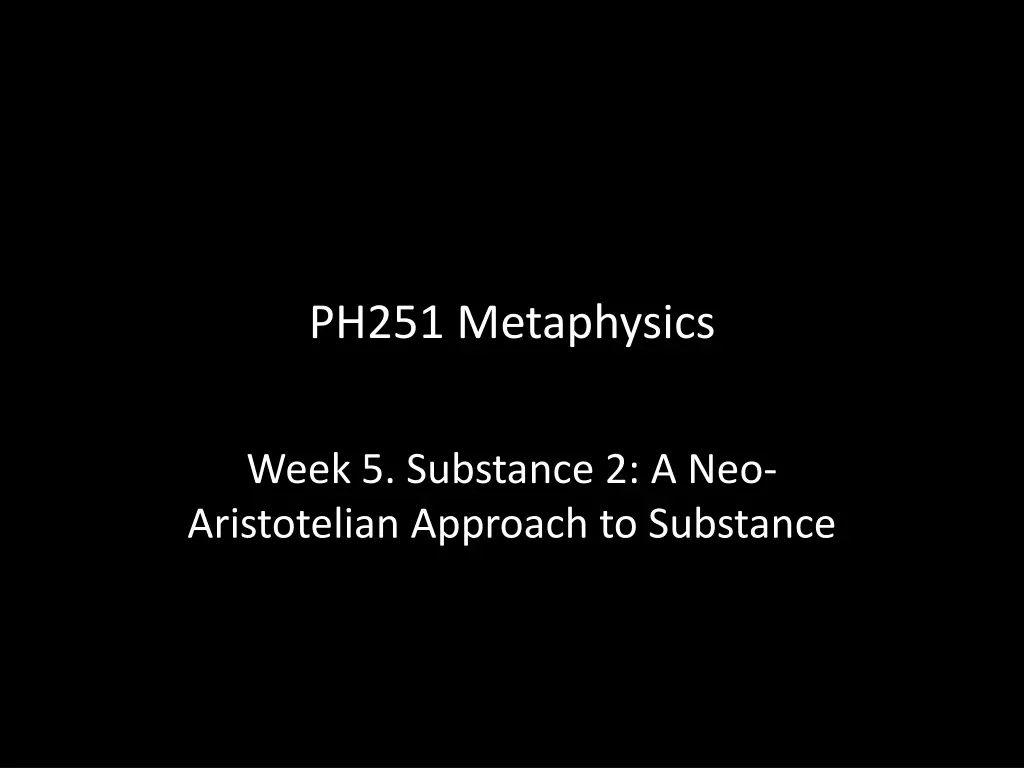
Neo-Aristotelian Approach to Substance in Metaphysics
Explore the Neo-Aristotelian approach to substance in metaphysics, focusing on the concepts of bare particulars, substrata, and bundle theories as well as the interpretation of substance in Aristotle's Categories. Delve into the distinctions between primary and secondary substances, and the philosophical implications of defining particulars as substances in the context of Aristotle's teachings.
Download Presentation

Please find below an Image/Link to download the presentation.
The content on the website is provided AS IS for your information and personal use only. It may not be sold, licensed, or shared on other websites without obtaining consent from the author. If you encounter any issues during the download, it is possible that the publisher has removed the file from their server.
You are allowed to download the files provided on this website for personal or commercial use, subject to the condition that they are used lawfully. All files are the property of their respective owners.
The content on the website is provided AS IS for your information and personal use only. It may not be sold, licensed, or shared on other websites without obtaining consent from the author.
E N D
Presentation Transcript
PH251 Metaphysics Week 5. Substance 2: A Neo- Aristotelian Approach to Substance
Introduction (i) We discussed some basic difficulties with both bare particular theory and bundle theories of particulars. (ii) This week I will introduce the idea that particulars are substances, in a sense that is determined by Aristotle.
Substrata revisited Bare particulars or substrata are entities that possess properties but possess no properties essentially. Bare particulars can explain the numerical distinctness of qualitatively identical particulars, and can account for the idea that properties are predicable of things in which they inhere or which possess them. But (a) there are epistemological difficulties with bare particulars/substrata (i.e. is it possible to know anything of philosophical interest about them? (b) is the idea of a substratum even coherent?
Bundle Theory revisited The view that ordinary particulars are bundles of properties (a) does not encounter such epistemological problems (properties can be sensed directly) and (b) doesn t attempt to understand what a particular is in a way that threatens incoherence; But: (1) it is committed to the identity of indiscernibles, which is false; and (b) cannot account for change of properties by a particular (at least without considerable reworking or sophistication of the basic view).
Substance in the Categories A substance that which is called a substance most strictly, primarily, and most of all is that which is neither said of a subject nor in a subject, e.g. the individual man or the individual horse. The species in which the things primarily called substances are, are called secondary substances, as also are the genera of these species. For example, the individual man belongs in a species, man, and animal is a genus of the species; so these both man and animal are called secondary substances. [Categories, 2a 11-19]
Substance in the Categories It is reasonable that after, the primary substances, their species and genera should be the only other things called (secondary) substances. For only they, of things predicated, reveal the primary substance. For if one is to say of the individual man what he is, it will be in place to give the species or the genus (though more informative to give man than animal); but to give any of the other things would be out of place for example, to say white or runs or anything like that. [Categories, 2b, 28-35]
Substance in the Categories 1. Primary substance is not in anything though things are in it 2. Primary substance is not predicable of anything, though things are predicable of it. (In 2. compare primary substances like Bucephalus and secondary substances like horse)
Some Aristotelian thoughts about Substance There is a difference between the questions: What is it? and What is it like? The first question invites an identification of a thing in terms of the kind or sort to which it belongs. (A natural kind is a universal that the object instantiates; for example, human being, cat, dog, etc.).
The role of sorts or kinds Kinds and Change: Paradigm of a primary substance is something endowed with a nature (inner principle of change) that belongs to a natural kind. It grows and develops in characteristic ways. Kinds and identity: The kind to which the individual belongs determines the identity conditions for things of that kind (or associated with such conditions), both at a time and over time. Kinds embody information about how things grow and develop; what kinds of changes they survive, and what kinds of changes that they do not. Kinds and numerical distinctness: Instances of kinds are concrete particulars. For there to be two instantiations of the kind human being is for there to be two concrete particular human beings.
Aristotelian Substance and Substrata The substratum theorist is correct that properties must be possessed by things, and that substance itself cannot be identified with a property or a collection of properties. But the substratum theorist is mistaken in taking it that substances don t possess any properties essentially (like falling under some specific kind). Substances are familiar objects like cats and human beings. These things possess such properties as being a cat or being a human being, in falling under the relevant natural kinds. It is essential to each of these things that they have such properties. There are no epistemological difficulties in knowing about such concrete primary substances
Aristotelian substance and bundles The bundle theorist is correct that substance is not something bare, which lacks any properties essentially. But such theorists cannot account for the fact that a substance cannot be a mere collection of properties, and that it is possible for substances to persist through changes of property. What explains the possibility of change is that a primary substance doesn t just possess characteristic properties but falls under a natural kind (and thereby has essential properties). This natural kind provides a rationale for why a single thing can persist while gaining and losing properties.
David Wiggins (2001) Sameness and Substance Renewed Articulates a neo-Aristotelian substance theory Argues that individuation and identity requires reference to sorts or kinds Sortal concepts are the concepts of kinds or sorts of objects A central claim of the book is D: the Sortal Dependence Thesis
Sortal Dependence If somebody claims of something named or unnamed that it moves, or runs or is white, he is liable to be asked the question by which Aristotle sought to define the category of substance: What is it that moves (or runs or is white)? Perhaps one who makes the claim that something moves does not need to know the answer to this question in order to enter his claim. It is not hard to envisage circumstances in which he can know that it moves without knowing what the thing is. Yet it seems certain that, for each thing that satisfies a predicate such as moves , runs or white ,
Sortal Dependence there must exist some known or unknown, named or nameable, kind to which the item belongs and by reference which the what is it question could be answered. Everything that exists is a this such. Where someone fully understands what he is judging when he says that this, that or the other thing moves, or runs or is white, he will know what the thing in question is.
Sortal Dependence Secondly, if someone reports further that the thing that runs is the same as the thing that is white, then his judgement cannot be true unless at least two conditions are satisfied. These conditions are that the thing that runs should be the same something or other as the thing that is white (the same horse, say, or the same man or whatever) and that the something in question be correlative with or associated with a principle by which entities of a particular kind may be traced or kept track of and re-identified as one and the same. (2001, p.21-2)
Sortal Dependence (1) Anything that exists is a this such (there is a kind, known or unknown, under which this thing falls. (2) x = y iff: (a) x and y fall under some kind or concept f such that (b) to say that x falls under f is to say what x is (c) The kind under which x and y fall is associated with criterion of identity for things of that particular kind (something that provides information about what is required for things of that to be the same thing, and a grasp of which allows for things of that kind to be tracked or re-identified.) and
Sortal Dependence (d) x is the same f as y, that is to say, x coincides with y under the criterion of identity for f things (according to the criterion of identity for fs) (3) For any x, there is a single sortal concept f that x falls under at each and every time at which it exists. (If you have a substance, there is a single kind that it exemplifies at all times, that subsumes all others. This is that which provides a fundamental identification of that substance.)
Challenges to the Sortal Dependence Thesis: Sortals and Careers 1. Not all sortals are such that an object falls under them through all of its history ( boy ) 2. Objects with dual-natures. Robinson (2014) and the case of the sword-stick
Response to 1: Phased sortals A phased sortal is an answer to the What is it? question that some particular object instantiates only temporarily (e.g. boy, baker, artist, pensioner) These sortal terms are all restrictions of some underlying sortal term that picks out a kind that the relevant entity falls under throughout its whole existence (in this case, human being). A boy is a young human being. A baker is a human being who bakes. An artist is a human being who produces works of art. It can t be the case that x is the same boy as y without being the same human being (because a boy is a variety of human being (a young male human being).
Response to 2 1. Sword-stick goes out of existence and is replaced (?) 2. The object is a walking stock through all its history. Sword is a phased sortal of the walking stick.
Challenges to the Sortal Dependency Thesis: Ayers on physical object Why must primary substances be understood to be restricted to things which fall into Aristotelian sorts or natural kinds? Isn t lump of stuff or physical thing a perfectly good way to individuate and keep track of things?
Ayers on D: Sortal Dependence (I)f we are neither Aristotelians nor conceptualists, it might seem that a lump of lead is quite an impressive individual in its own right, perhaps no less so than a plant; and that artifacts, while sometimes physically unitary, like most teaspoons, are sometimes hardly more than notionally so, like a steam engine. In that case, since lumps and pieces do not form a kind in any significant sense, the principle that all individual substances belong to kinds would seem dispensable. (Ayers, (1991), p.89)
Response to Ayers on material object There are different ways that the defender of D might respond. (a) Singling out something as a physial object or a mere lump of stuff doesn t determine unambiguous identity conditions. (ii) But is this convincing? Don t we take coherence of a lump to be identity preserving (and dissipation and dispersal not). (b) A different idea (drawing on Wiggins (1995) and his discussion of artifact identity) is that we can think of lumps of stuff as persisting objects. But they are not central or paradigmatic cases. They are characterized by distance from, though likeness to, primary substance.
Challenges to Sortal Dependency: Realism about Identity Ayers (1974), (1990) and (1991) alleges that the fact that sortal concepts are mind- dependent makes the identity (and non- identity) of objects of different kinds, on Wiggins s view, mind and language- dependent. But the identity of such objects is not so dependent. We ought to be realists about identity.
Reply to Ayers on Realism about Identity: Wiggins s Conceptualist Realism 1. Sortal concepts are not mind-dependent . They are universals. 2. Whether anything falls under such concepts or not is an entirely mind-independent matter For further discussion see Wiggins (2001), ch.5
Reply to Ayers on Realism about Identity: Wiggins s Conceptualist Realism The literal purport of the conceptualist claim which the realist has put under discussion is not that the mind constructs reality. If it comes close to seeming to say that, this is only because the truth has here to rub shoulders with two opposing doctrines that are so similar in their pretensions and underlying absurdity as to leave only a small space between for truth to stand. Our claim was only that what sortal concepts we bring to bear upon experience determines what we can find there just as the size and mesh of a net determine, not what fish are in the sea, but which ones we shall catch. (2001: 151-2)
Take-home messages An Aristotelian, or a neo-Aristotelian approach to substance provides the general theoretical resources to navigate between substratum and bundle theories of particulars. Wiggins (2001) develops a neo-Aristotelian approach at the core of which is the Sortal Dependence Thesis. There are challenges to this thesis, but there is reason to believe that Wiggins has the resources to respond to these challenges.




